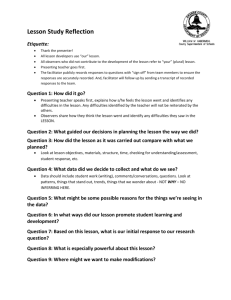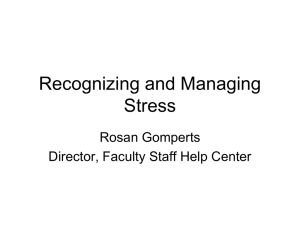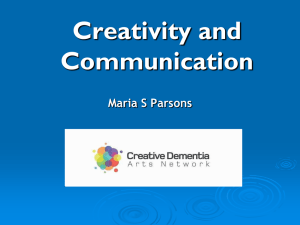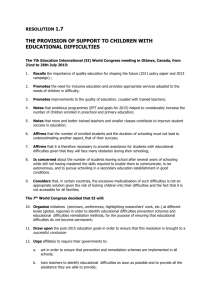Full paper (word doc) - Lancaster University
advertisement
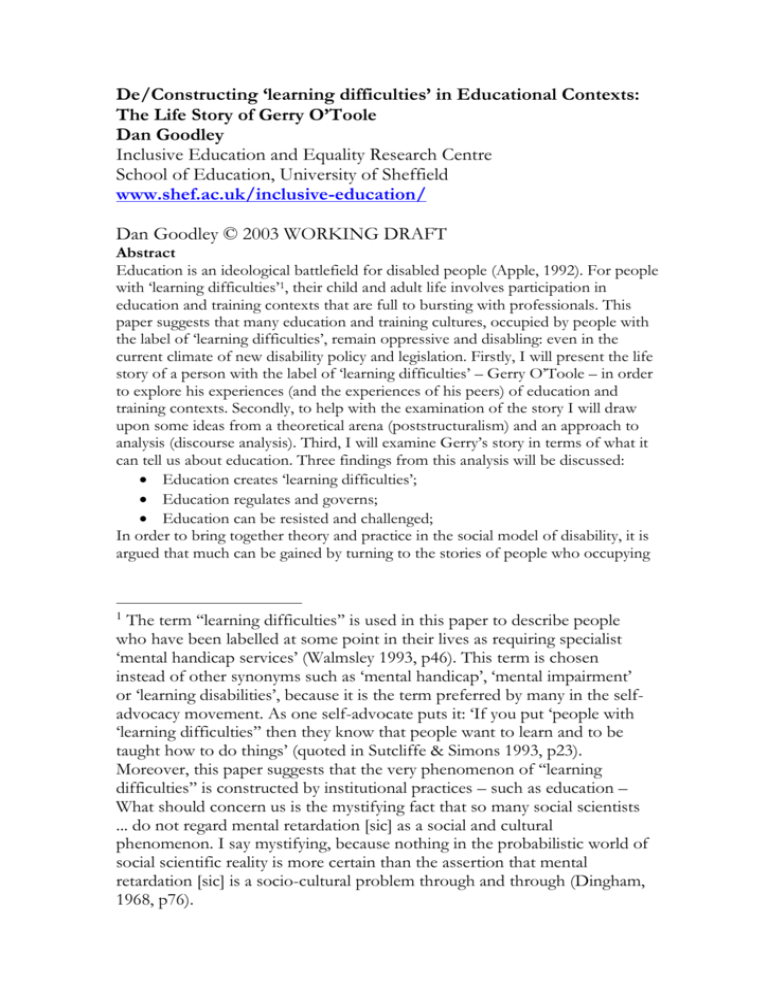
De/Constructing ‘learning difficulties’ in Educational Contexts: The Life Story of Gerry O’Toole Dan Goodley Inclusive Education and Equality Research Centre School of Education, University of Sheffield www.shef.ac.uk/inclusive-education/ Dan Goodley © 2003 WORKING DRAFT Abstract Education is an ideological battlefield for disabled people (Apple, 1992). For people with ‘learning difficulties’1, their child and adult life involves participation in education and training contexts that are full to bursting with professionals. This paper suggests that many education and training cultures, occupied by people with the label of ‘learning difficulties’, remain oppressive and disabling: even in the current climate of new disability policy and legislation. Firstly, I will present the life story of a person with the label of ‘learning difficulties’ – Gerry O’Toole – in order to explore his experiences (and the experiences of his peers) of education and training contexts. Secondly, to help with the examination of the story I will draw upon some ideas from a theoretical arena (poststructuralism) and an approach to analysis (discourse analysis). Third, I will examine Gerry’s story in terms of what it can tell us about education. Three findings from this analysis will be discussed: Education creates ‘learning difficulties’; Education regulates and governs; Education can be resisted and challenged; In order to bring together theory and practice in the social model of disability, it is argued that much can be gained by turning to the stories of people who occupying The term ‘‘learning difficulties’’ is used in this paper to describe people who have been labelled at some point in their lives as requiring specialist ‘mental handicap services’ (Walmsley 1993, p46). This term is chosen instead of other synonyms such as ‘mental handicap’, ‘mental impairment’ or ‘learning disabilities’, because it is the term preferred by many in the selfadvocacy movement. As one self-advocate puts it: ‘If you put ‘people with ‘learning difficulties’’ then they know that people want to learn and to be taught how to do things’ (quoted in Sutcliffe & Simons 1993, p23). Moreover, this paper suggests that the very phenomenon of ‘‘learning difficulties’’ is constructed by institutional practices – such as education – What should concern us is the mystifying fact that so many social scientists ... do not regard mental retardation [sic] as a social and cultural phenomenon. I say mystifying, because nothing in the probabilistic world of social scientific reality is more certain than the assertion that mental retardation [sic] is a socio-cultural problem through and through (Dingham, 1968, p76). 1 educational places and the poststructuralist analyses that accompany their experiences. This paper is still in progress and responds critically to the work of a recently completed text: Goodley, D., Lawthom, R., Clough, P. and Moore, M. (forthcoming, 2004). Researching Life Stories: Method, Theory and Analyses in a Biographical Age. London: Routledge Falmer Press. For further details of the progress of this paper, please contact d.goodley@shef.ac.uk
